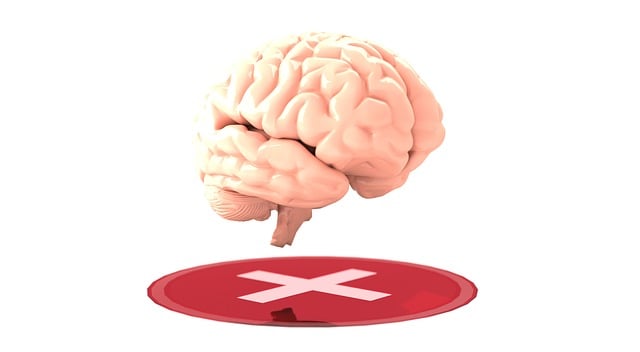Broomfield Major Life Transitions Therapy (MLTT) provides specialized support for individuals recovering from trauma during significant life changes, addressing unique traumatic experiences with empathy and cultural sensitivity. Using evidence-based practices like mindfulness meditation tailored to individual needs, MLTT fosters healing, builds resilience, and empowers clients through compassionate cultivation. Efforts to improve accessibility include training in cultural sensitivity and multilingual resources, ensuring all people receive the care they need regardless of background or language.
Trauma, a profound and lasting impact on individuals, necessitates comprehensive support services. This article explores the critical role of Broomfield Major Life Transitions Therapy in trauma healing. We delve into understanding trauma’s far-reaching effects, highlighting its impact on daily functioning. Furthermore, it examines the development of effective service frameworks, addressing challenges in access and delivery. By examining real-world solutions, this guide illuminates how Broomfield Major Life Transitions Therapy offers transformative paths to recovery, empowering individuals to navigate life’s transitions with resilience.
- Understanding Trauma and Its Impact on Individuals
- The Role of Broomfield Major Life Transitions Therapy in Trauma Support
- Creating an Effective Trauma Support Service Framework
- Accessing and Delivering Quality Care: Challenges and Solutions
Understanding Trauma and Its Impact on Individuals

Trauma is a profound and complex experience that can significantly shape an individual’s life trajectory. It often arises from intense or overwhelming situations, such as accidents, violence, or natural disasters. Understanding trauma goes beyond mere knowledge; it involves comprehending its deep psychological effects on the brain and behavior. When left unaddressed, trauma can lead to long-lasting mental health issues, affecting one’s ability to navigate daily life and cope with challenges.
Broomfield Major Life Transitions Therapy recognizes that every person’s journey through trauma is unique. Effective support services must consider individual experiences and cultural backgrounds, employing strategies like empathy building to foster trust and understanding. Cultural sensitivity in mental healthcare practice is paramount, ensuring a safe and inclusive environment where clients feel heard and respected. By integrating positive thinking techniques, therapists can help individuals reframe their experiences, promoting healing and personal growth.
The Role of Broomfield Major Life Transitions Therapy in Trauma Support

Broomfield Major Life Transitions Therapy (MLTT) plays a pivotal role in trauma support services by offering specialized care tailored to individuals navigating significant life changes post-trauma. This therapeutic approach recognizes that traumatic events can disrupt one’s ability to cope with everyday transitions, such as job shifts or personal relationships. MLTT provides a safe and supportive environment where clients can explore these transitions and their potential impact on emotional well-being.
Through compassion cultivation practices, the therapy equips individuals with essential tools to enhance self-awareness and build resilience. This process not only aids in processing traumatic memories but also promotes a sense of empowerment, fostering a crucial confidence boost necessary for healing. By integrating burnout prevention strategies for healthcare providers, MLTT ensures that clients receive care that is both effective and sustainable, addressing the unique challenges faced by those dealing with trauma and life’s inevitable transitions.
Creating an Effective Trauma Support Service Framework

Creating an effective trauma support service framework involves understanding and addressing the unique needs of individuals experiencing trauma. At Broomfield Major Life Transitions Therapy, we recognize that every person’s journey with trauma is distinct, necessitating tailored interventions. Our approach emphasizes the integration of evidence-based practices, such as mindfulness meditation, to foster resilience and promote healing. By incorporating these techniques into comprehensive therapy programs, we empower clients to develop self-care routines for better mental health and stress management.
This framework further prioritizes a safe, supportive environment where individuals feel heard and validated. Trained therapists play a pivotal role in guiding clients through the process, offering tools to navigate challenges effectively. By combining specialized therapy with practices like mindfulness meditation and encouraging self-care, we strive to create a holistic support system that caters to the diverse needs of trauma survivors.
Accessing and Delivering Quality Care: Challenges and Solutions

Accessing quality trauma support services can be a complex and challenging journey for many individuals, particularly those from diverse cultural backgrounds. Barriers such as limited awareness, stigma associated with mental health, and language or communication difficulties often prevent people from seeking the help they need. In Broomfield, efforts are being made to improve accessibility through integrated services that consider Cultural Sensitivity in Mental Healthcare Practice. This involves training healthcare professionals to be more inclusive and providing resources in multiple languages to cater to the diverse community.
One effective solution is incorporating Broomfield Major Life Transitions Therapy models that offer tailored support, focusing on building confidence and resilience. By addressing these challenges head-on, trauma support services can become more inclusive and accessible, ensuring that all individuals receive the care they deserve. This approach not only enhances overall well-being but also empowers people to navigate life’s transitions with greater ease.
In conclusion, addressing trauma requires a multifaceted approach, as highlighted by the discussion on Broomfield Major Life Transitions Therapy and other support services. Understanding the profound impact of trauma on individuals is the first step towards effective care. Creating robust frameworks for trauma support, coupled with accessing and delivering quality care despite challenges, is essential to fostering healing and recovery. The strategies presented in this article, including the role of specialized therapies like Broomfield Major Life Transitions Therapy, offer a roadmap for improving trauma support services and enhancing the well-being of those affected by traumatic events.














